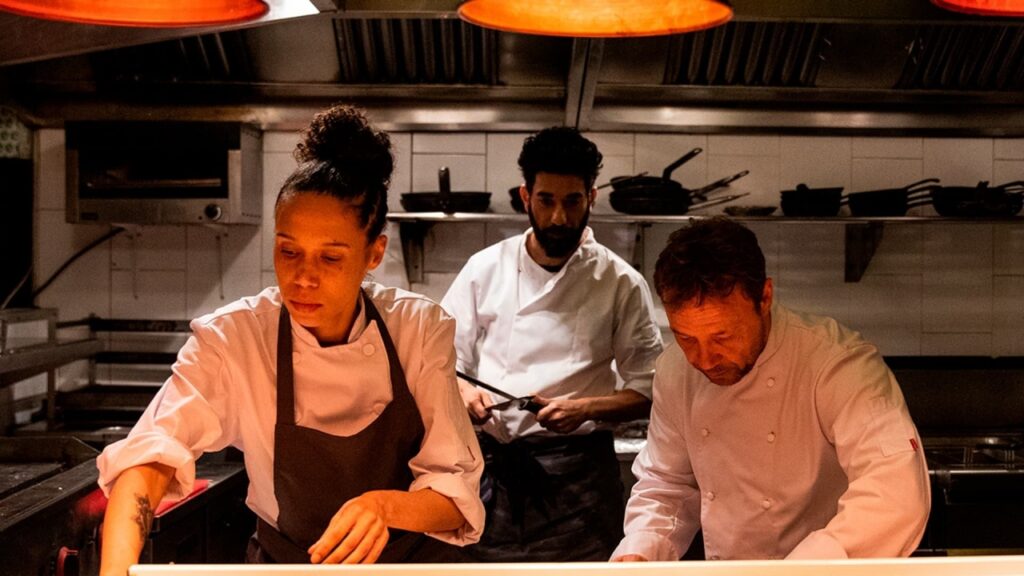By Kemuel Othieno
Released in 2021, to much acclaim, Boiling Point, Philip Barantini’s first feature film, offers a view of London’s fine dining scene reminiscent of the gritty, grounded descriptions of Anthony Bourdain and George Orwell (Down and Out in Paris and London). The movie is a uniquely honest portrayal of the lives of service workers.
Opting to abandon the kitchen and restaurant as a setting for a story independent of food and cooking, Barantini and his long-time collaborator James Cummings intertwine the lives of the workers in an upscale London establishment with the work they do there. The film follows Andy Jones and his crew at the restaurant Jones & Sons as, over the course of one night, the fragile balance that had kept the establishment going along is fractured beyond repair.
Jones & Sons holds an enviable position in the city’s dining scene. The front end of the restaurant is a temple of culinary marvels cooked up by the talented Jones. The kitchen however is far from a reflection of the standards in the front. The restaurant has just had its food hygiene rating downgraded, while the head chef is spiralling out of control from a drug habit that has carved up his home life, and he faces a mutiny in the kitchen. From the beginning to the very bitter end, Boiling Point offers no respite from the trainwreck that is unfolding, keeping the audience aware that everyone on screen has demons to face.
The cast led by Stephen Graham as Jones in an emotive performance might not have much recognition outside the United Kingdom but that says nothing about the quality on display. Hannah Walters who plays Emily has an intense maternal chemistry with the young Stephen McMillan (Jamie). Theirs stands as a solitary moment of hope in the bleak space they are in. Ray Panthaki as Freeman and Vinette Robinson as Carly are forceful counters to Jones’ chaotic presence. Panthaki particularly is able to channel the seething rage that only those who suffer under incompetent management are familiar with.
Philip Barantini filmed Boiling Point in that most hallowed of styles – the one-shot film. Matthew Lewis who served as the cinematographer took charge of the gruelling filming, adopting a true oner with continuous filming for 90 minutes. Filming was tense and chaotic.
The film explores not only racism and discrimination but also delves into the mental health struggles experienced by people working in high-pressure environments.
Boiling Point is an ambitious directorial debut whose premise is enriched by the craftsmanship behind the film, which compliments that of the culinary industry. The movie shows as much dedication to film as it does food, and the series that serves as its sequel must be considered seminal works among other culinary films.


